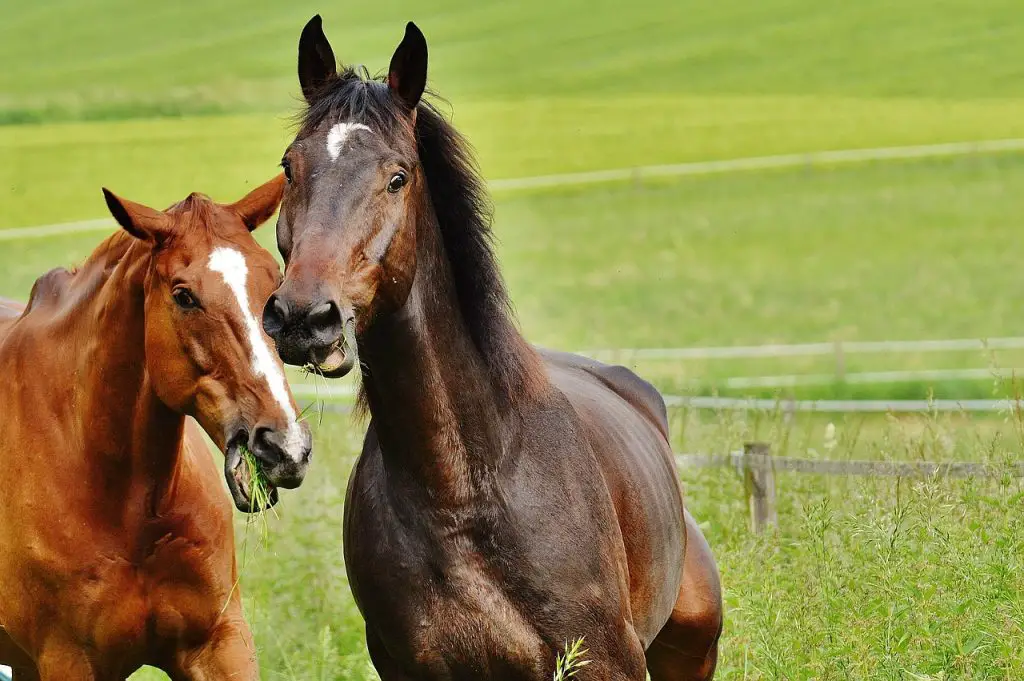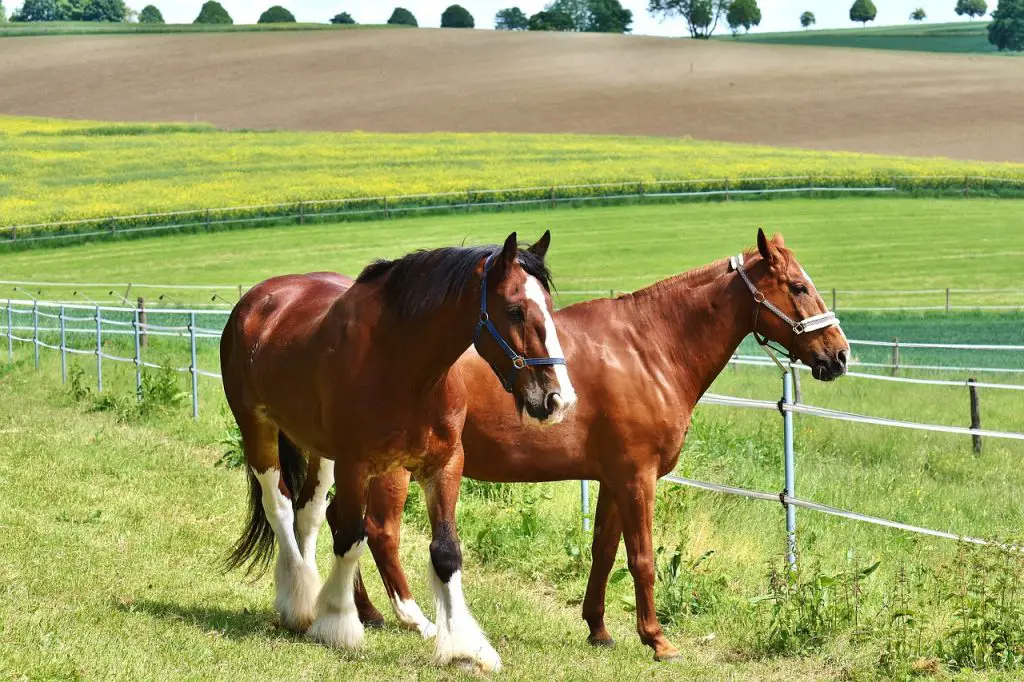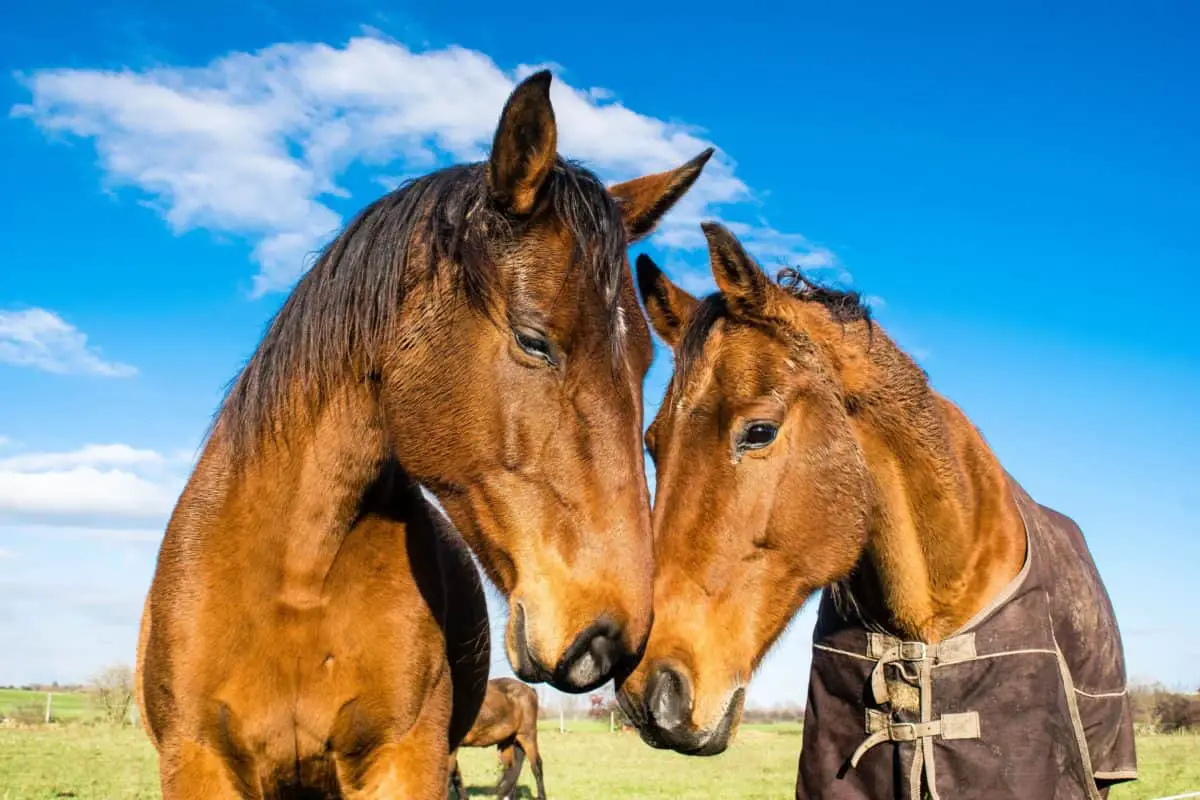Last Updated on July 28, 2020 by Allison Price
With the horse’s elegance and intelligence, they have managed to adapt to changes in time. With this, their breeding is also widespread around the world. Reproduction and behavior are two of the most important aspects of animal life. Here we will be discussing everything we need to know about horses’ mating.
Estrus or Heat Cycles
The best season for horses to mate is usually during spring. Heat and natural light become stimulators in a horse’s brain. This results in an increase in the production and natural release of sex hormones. When mares are in heat, they show symptoms of mucous secretion and swollen vulvae. This makes them receptive to male horses.
Signs of Estrus in the Mare include:
- General receptivity to the stallion
- Tail raising
- Frequent urination
- Winking of the vulva
- Assuming a breeding/squatting stance
Signs of Diestrus include:
- Indifference or aggression toward the stallion
- Moving away from a stallion
- Tail switching
- Ears back
- Squealing or kicking and striking
Pheromones are usually released during urine during heat. This is then detected by stallion horses. This will then lead to Stallions experiencing peaks of sexual activity. Also, they will know when females are fertile. This is now the beginning of their breeding season. This can extend until the last weeks of summer or the beginning of autumn.
Things Horses Do During Mating Season

Courtship
When in mating season, horses will present a complex yet elegant way of courtship. A male horse will present behaviors such as imposing a haughty posture in front of the mare. He will arch his neck to highlight the muscles of his chest and shoulders. This behavior often calls out the attention of the mare. Horses do know how to flex. A male horse will also emit neighing sounds vocalizing they are ready to mate. The noise he made is like the poems we make.
Courtship Dance
This is the last step in horse courtship. It involves a male horse circling the female to capture her attention. During the courtship, the male horse will lift his hooves from the ground and turn in its own axis.
If the female is receptive, the male horse will caress her neck with his snout. Then, he will rub his body against hers, proceeding to sniff her tail, rump, hind legs, and genitals. If still receptive, the female horse will lift her tail as a sign she is ready to mate and the male horse will then mount.
Horse mating and fecundation occur by riding. It is just like how the majority of any mammals did. If the female horse isn’t receptive, she will most likely walk away. This leaves the cold, hurt lover alone on his stall.
How Long Do Horses Mate?

Horse courtship is longer than the mating process. Mating usually lasts only a few minutes if undisturbed. But, estrous cycle will vary from 19 to 26 days. A horse will mate once in a day. The mare is in heat usually for three to seven days. During this, she will approach her mating partner a couple of times until they do it. During breeding season, mares must do estrous cycle often before they can conceive.
Five Reminders during Mating Season
We should know the fertility of both horses.
Also, picking the right mate partner is a must. You must know that both horses should be fertile before breeding them.
If your mare is low infertile, it’s best to choose a stallion that has a high fertility history. If a stallion has good fertility, the mare can be then mated 48 or even 72 hours before ovulating.
Breeding to a less fertile stallion may result in intensive veterinary care for the mare. This is because the veterinarian must watch for signs of imminent ovulation. Testicular size determines sperm production capability. Stallions with larger testicles have a larger daily output of spermatozoa.
Make sure the mare is in heat.
This is to prevent anger and to save time and energy. Also this is to protect people and other horses from the wrath of an unwilling mare.
Reduce the horses’ stress.
Mating or breeding can be stressful for some horses. Stress can interfere with fertility. Young mares or former race fillies are usually stressed when leaving home. Some of the horses have separation anxieties from stablemates. They got stressed when traveling and frequent veterinary exams. Also, mating with a stallion that does not belong to the herd can be a problem. Stallions are usually stressed if they have to compete with others during courtship.
Cut as many stress factors as you can. Transport young mares with stablemates. You can bring them to the stud farm several days before breeding. This is so they can get accustomed to their surroundings. Also, reduce the stallion’s workload whenever workable. Give him regular days off from breeding to rest.
Prepare the horses physically and mentally
Have them dewormed before mating. Parasites interfere not only with fertility but also with its attraction to others. Before breeding season, have them checked in your local vet. Any chronic health issues or reproductive problems should be then addressed.
Understand the horses’ natural behavior.
Allow the horses to do whatever their mating rituals are. Let them do what is normal. If the stallion shows poor behavior during courtship, then let them act like that for a while. Restricting something normal might cause your stallion to lose interest in breeding. This will also lead to develop libido problems.
We also recommend letting the horses stay close to each other for a few minutes after mating. This maintains the social bond. Thus, this gives time for the stallion to recover.
Takeaway
Horses are not monogamous animals. These pairs of horses do not establish lifelong relationships. They can mate any horses every breeding season. Also, it is always interesting how horse courtship exudes elegance and complexity.


